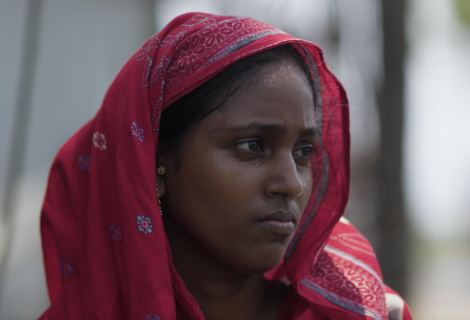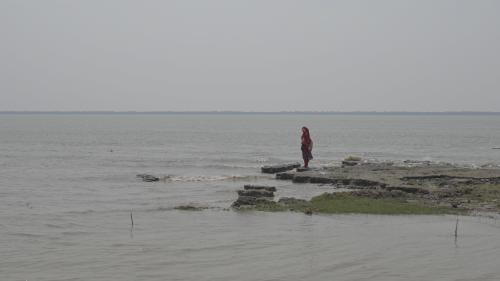From floods to financial strain: Liza’s journey through the climate crisis and price rises

In a world facing an unprecedented cost of living crisis, local communities in the Global South are again bearing the burden of severe price rises for essentials such as food, fuel, and fertilizer.
Even before the invasion of Ukraine, communities across the world were grappling with the far-reaching effects of the COVID-19 pandemic. In 2020, a year that tested the resilience of so many, food security surged to alarming levels surpassing the previous five years combined. Then in 2022, the invasion of Ukraine resulted in even sharper rises of food, fuel, and fertilizer prices as the war impacted supplies from both Russia and Ukraine, which are among the world’s top exporters of these products. Our research released in May 2022 in the report “Doubly Devastating” revealed that local communities were paying double, triple, or even close to four times what they had been paying for food, fuel, and fertilizer before the war began.
Now, ActionAid’s new and more detailed research has found that families are spending up to ten times what they paid almost 16 months ago for food, fuel, and fertilizer. While global prices have dropped by 11.7% since February 2022, our research finds that prices in local communities in the Global South have increased to crisis levels.
Liza Begum, a displaced woman in Manjupara, Bangladesh, describes to us what these crisis levels mean for her family:
“We used to buy a chicken for 150 taka per kg ($1.40) but now it’s almost 300 taka per kg ($2.79). A year ago, one fish cost around 200 taka ($1.86), but now it’s almost 1,000 taka ($9.31). Before this, we could catch fish ourselves. We used to eat well at that time, but now it’s hardly manageable. Oil prices also went up and so it’s a difficult task to keep up with it. Right now, we don’t have anything. We have no earnings. If we can’t go to work, then we won’t be able to compensate for the rising prices.”
Liza’s livelihood, previously sustained by raising and selling poultry and livestock, suffered a severe blow during Cyclone Sidr. The current price rises coupled with the absence of steady employment opportunities have created a very difficult situation for Liza and her husband:
“5 years ago, Cyclone Sidr polluted all our fresh water. I had many chickens and ducks, but during floods everything was taken away in an instance. When floods occur, we always think about where we will go next. I feel very sad and tired when moving from one place to another in order to survive. People tell us to move away from here, but even we don’t know where we would go.”
Liza and her husband have been consistently displaced by climate-induced flooding over the past several years. In their previous home, they were unable to leave whenever the water level rose and often couldn’t even make it to the cyclone center for shelter because they couldn’t swim to get there.

Bangladesh is especially vulnerable as communities face multiple converging crises exacerbated by a climate crisis that is growing in ferocity. 57% of women surveyed in Bangladesh said they are now in debt because of the current situation. All in all, the effects of multiple crises are reducing women and girls' access to food and education and increasing occurrences of child marriage and gender-based violence. Together, these negative impacts have taken a massive toll on women and girls' mental health.
ActionAid is advocating for a holistic approach and adequate funding that tackles all interconnected crises exacerbating the price crisis, which includes climate change, debt stress, the COVID-19 pandemic, and the profound repercussions of the Russian invasion of Ukraine.
Read our latest report and recommendations here.
Read about other women in Bangladesh navigating the impacts of the price rise crisis: